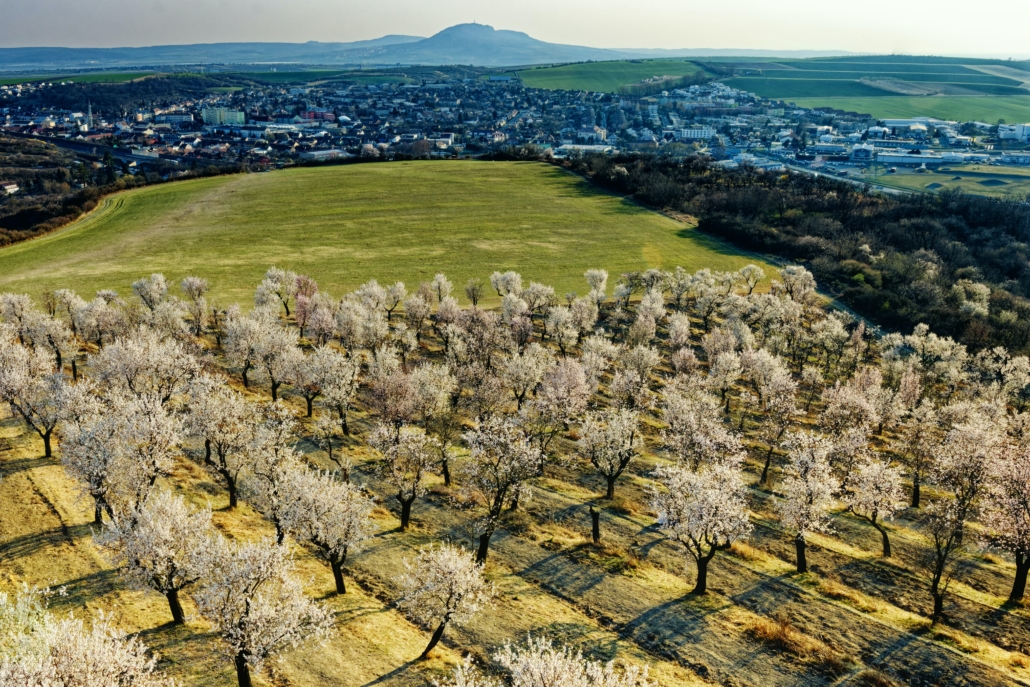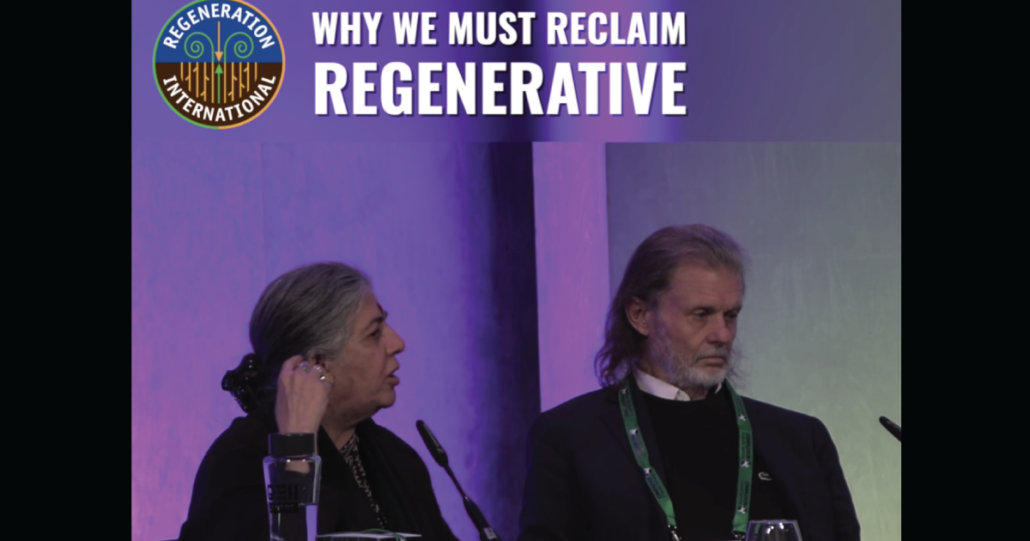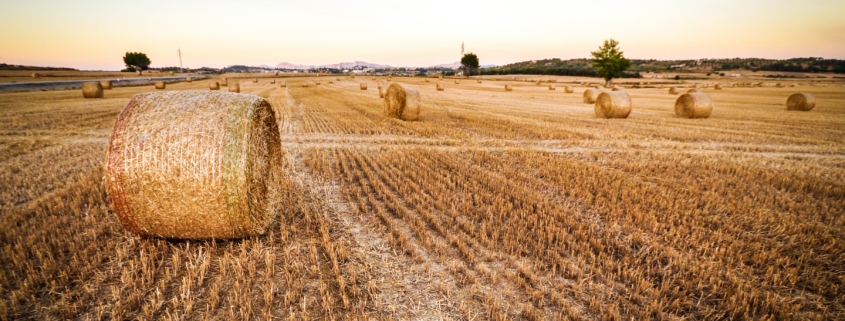California Proposes to Hijack Regenerative Agriculture
“Regenerative agriculture provides answers to the soil crisis, the food crisis, the climate crisis, and the crisis of democracy.” Dr. Vandana Shiva
California has unilaterally decided to define Regenerative Agriculture. It is a subnational government with no formal role in the Regenerative Agriculture movement.
It has a state government with entrenched bureaucracies, such as The California Department of Food and Agriculture (CDFA), that regulate and condone some of the world’s worst excesses in industrial-scale Degenerative Agriculture on the planet.
California has the highest toxic pesticide use in the US, some of the worst excesses in industrial-scale monocultures such as the almond and other fruit and vegetable farms in the Central Valley that have destructively tilled bare soil, drenched with toxic herbicides, insecticides, fungicides, and chemical fertilizers. It has large scale cruel, confined animal feeding operations. California has an unsustainable use of water. These farms are causing severe health damage to people and the environment.

Photo credit: Unsplash
The CDFA is taking submissions from interest groups. This includes agribusiness poison cartels such as Bayer/Monsanto, Syngenta, and others trying to hijack and greenwash their degenerative systems as regenerative agriculture.
The CDFA has never been involved in the regenerative agriculture movement, and this move to make a Californian definition without consulting the major regenerative organizations and including non-regenerative groups, is hijacking. The last thing the world needs is a subnational government with such a terrible record in farming systems hijacking regenerative agriculture so it can greenwash its degenerative systems.
Regeneration International is the largest and most significant regenerative organization on the planet, with 500 partners in over 70 countries in Africa, Asia, Latin America, Australasia, the Pacific, North America, and Europe. We are the people who started the global regeneration movement.
Leaders of the organic, agroecology, holistic management, environment, and natural health movements started Regeneration International as a genuinely inclusive and representative umbrella organization. We aimed to establish a global network of like-minded agricultural, environmental, health, and social organizations to regenerate agriculture, our health, environment, climate, and communities – which is what we have done. We continue to grow every week.
Due to the diversity of like-minded partners, regenerative agriculture is now being used as an umbrella term for the many farming systems that use techniques such as longer rotations, cover crops, green manures, legumes, compost, and organic fertilizers. These include organic agriculture, agroforestry, agroecology, permaculture, holistic grazing, silvopasture, syntropic farming, and other agricultural systems that increase soil organic matter/carbon. Soil organic is an essential proxy for soil health – as soils with low levels are not healthy.
The regeneration movement is an innovative, dynamic space. Regeneration International has opposed simple definitions and attempts to make standards as these will inhibit this innovative movement.
Defining Regenerative Agriculture.
By definition: Regenerative systems improve the environment, soil, health, animal welfare, and communities.
The opposite of Regenerative is Degenerative
By definition: Agricultural systems that use Degenerative practices and inputs that damage the environment, soil, health, and communities and involve animal cruelty, such as synthetic toxic pesticides, synthetic water-soluble fertilizers, genetically modified organisms, confined animal feeding operations, and destructive tillage systems, are not Regenerative.
They must be called out as Degenerative Agriculture.

Regenerative and Organic based on Agroecology – the path forward.
RI’s perspective: All agricultural systems should be regenerative and organic using the science of agroecology.
Regeneration must be seen as a way to improve systems. Practitioners must determine what practices are acceptable and what practices are degenerative and, therefore, unacceptable. The criteria to analyze this must be based on the Four Principles of Organic Agriculture. These principles are clear and effective ways to decide what practices are Regenerative and what are Degenerative.
Health
Organic agriculture should sustain and enhance the health of soil, plant, animal, human, and the planet as one and indivisible.
Ecology
Organic agriculture should be based on living ecological systems and cycles, work with them, emulate them and help sustain them.
Fairness
Organic agriculture should build on relationships that ensure fairness in the familiar environment and life opportunities.
Care
Organic agriculture should be managed in a precautionary and responsible manner to protect the health and well-being of current and future generations and the environment.
Ronnie Cummins, one of our founders, clearly stated: “Regenerative agriculture and animal husbandry is the next and higher stage of organic food and farming, not only free from toxic pesticides, GMOs, chemical fertilizers, and factory farm production, and therefore good for human health; but also regenerative in terms of the health of the soil.”
The last thing the Regenerative Agriculture movement needs is government interference by a committee of non-stakeholder bureaucrats making definitions. The French Government’s agroecology definition was a crude attempt to greenwash industrial agriculture and the use of synthetic toxic pesticides and fertilizers. It was done without input from the global agroecology movement and has weakened the integrity of agroecology.
Similarly, the United Nations Food and Agriculture Organization promotes a version of agroecology that allows synthetic toxic pesticides and fertilizers, which has divided the agroecology movement.
We have seen the same with the government regulation of certified organic agriculture favoring large-scale industrial organic systems over small-family farmers. The USDA regulations have been hijacked to allow hydroponics, industrial-scale cruel animal factories, synthetic feed supplements, cancer-causing nitrate preservatives, highly processed junk foods, and various derogations that have fractured the organic movement and consumers.
As the founders of the international regenerative agriculture movement, Regeneration International will continue to lead, and we will call out attempts to hijack and greenwash.

